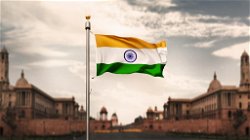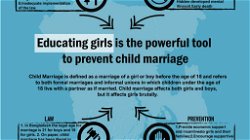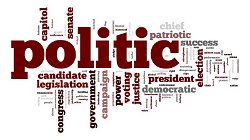Freedom of Expression and the Maintenance of Political Stability
Ronit Agarwal
. 4 min read
Freedom of expression is the right to express one's opinions, ideas, and beliefs without censorship, restraint, or fear of persecution. It is considered a fundamental human right and is protected by laws and constitution in many countries. The maintenance of political stability refers to the ability of a government to maintain a stable and orderly political system. This can involve maintaining control over the government's institutions and maintaining the rule of law. In some cases, governments may limit freedom of expression in order to maintain political stability. They may argue that certain forms of speech could incite violence or social unrest, or that it could be used to spread false or misleading information.
.jpg)
What exactly is meant by the term "Free Speech"?
Free speech can be defined in a number of different ways, but at its core, it refers to the individual's legal right to freely express or seek out ideas and opinions without the fear of censorship or legal action being taken against them. Individuals have the right to express themselves in any way they see fit, and since freedom of speech is a component of freedom of expression, this right extends to individuals as well.
Does having the right to freedom of speech mean that you can say whatever you want?
The simple answer to that question is no. The complete answer is that the particular law will vary from country to country, but in general, there are always going to be exceptions to the rule.
- They are concerned about either the public safety or the national security.
- They are concerned about avoiding disorder and criminal activity.
- They believe it will protect people's morals or their health.
- They are protecting information that is considered confidential because they have a need to preserve the authority and impartiality of the judges.
The Importance of the Right to Speak and Express Oneself Freely
This is significant because the people's ability to freely express their views on the government and to criticize it when necessary is essential to the successful operation of a democratic system. It is imperative that the voice of the people be heard, and that their complaints be addressed. In order for there to be true democracy, the people's voices need to be heard not only in the political sphere, but also in other spheres such as the social, cultural, and economic ones.
The Threat to Democracy: The Importance of Protecting Fundamental Liberties
Democracy is in danger when fundamental liberties such as the ones listed above are not respected. The government will eventually amass an excessive amount of power and begin to prioritize the interests of a select few over those of the general public. People will be more likely to put up with tyranny out of fear if there is a severe crackdown on their right to free speech and free press. People would experience a sense of suffocation under such conditions, and they would prefer to suffer than to voice their opinions. There is a strong correlation between the freedom of the press and the freedom to speak freely and express oneself.
Abuse of one's right to Free Speech:
One of the most common errors people make in today's world is believing that not only is it possible to exercise our freedom of speech, but that we ought to exercise it at any cost. The issue in today's world is that everyone believes they have the right to express their opinion AND have others listen to it, regardless of the potential harm that may be caused to the feelings of others as a result of doing so.
The Following are some Strategies for Bolstering Political Stability
1. Make some adjustments to the way you consume media. Stay away from talk shows that feature interviews with pollsters and that spend all day engaging in partisan bickering.
2. Make sure that people can hear you: Make it a point to stay in touch with your elected officials throughout the entire year, not just when it comes election time. You can also participate in community forums by calling, writing, or emailing.
3. Develop the skill of civil discourse by finding ways to engage in face-to-face conversation with other people rather than engaging in debates or giving speeches from a soapbox.
4. Do away with the "wealth primary": Long before voters cast their ballots in a primary, big money donors have already winnowed the field and selected who will be running for election.
Freedom of Speech Versus the Spread of hateful ideas
The United Nations encourages more positive speech and upholds respect for freedom of expression as the standard in order to combat the normalization of hate speech. Therefore, any restrictions must be an exception and should seek to prevent harm while also ensuring equality or the public participation of all individuals. In addition to the pertinent provisions of international human rights law, the UN Rabat Plan of Action provides key guidance to States on the distinction between freedom of expression and "incitement" (to discrimination, hostility, and violence), which is a violation of criminal law.
Balancing Freedom of Expression and Political Stability in a Functioning Democracy
The power to exercise one's right to freedom of expression is an essential component in ensuring that democratic principles are upheld and that the state is able to operate effectively. In the event that the state does not operate effectively and becomes sidetracked from the duties that it is obligated to fulfill, it is the common people's responsibility to bring this to their attention. Our society has bestowed upon us the gift of free speech as a means to live more honorably than to merely exist. "Free speech and expression are essential components of a functioning democracy."
More Stories from
Mastering Social Etiquette: Essential Tips for Polished Social Skills
It emphasizes the importance of being knowledgeable about social etiquette and paying attention to subtleties to avoid awkward situations.
India's New Parliament Bhavan: An Icon of Modernity and Functionality
The New Parliament Bhavan is a cutting-edge architectural marvel in New Delhi, India, serving as the modernized hub of the nation's democracy.
Child Marriage: A Global Challenge to Childhood Rights and Development
This article sheds light on the pervasive issue of child marriage, where millions of young girls and boys are married off before the age of 18.
Power and Pitfalls of Celebrity Endorsements in Politics
The article explores the role of celebrities in politics, focusing on their influence in India and Pakistan.






.png?width=40&aspect_ratio=1:1)




.png?width=40&aspect_ratio=1:1)